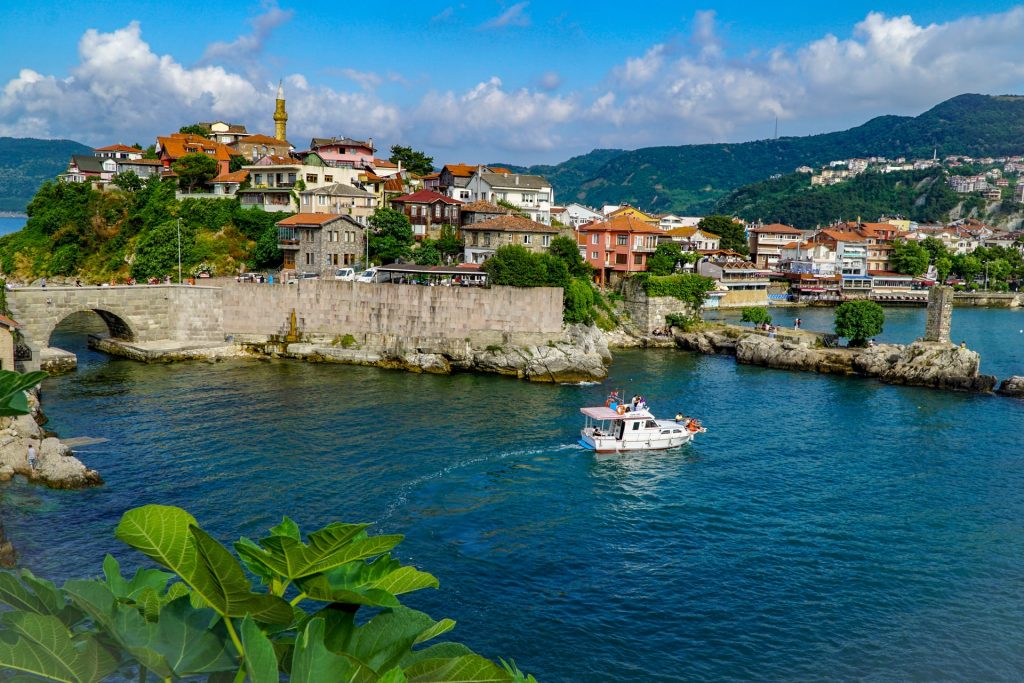The remote work model unfolded overnight. It has been fascinating to watch how professionals adapt to this new way of working and get a chance to blend travel and work. According to Buffer’s study, 44% of remote workers travel while working between one week and one month annually, and 25% do this work/travel combo more than 30 days per year.
We’ll all agree that, working from your Airbnb’s balcony in the central areas of busy Istanbul under the sound of car horns, having your third coffee at 11 AM, hides its charm. However, there are many unusual places off the beaten track suitable for remote workers.
Have a look at this list of lesser-known spots in the Balkans and make sure to update your travel bucket list.
Garmen, Bulgaria
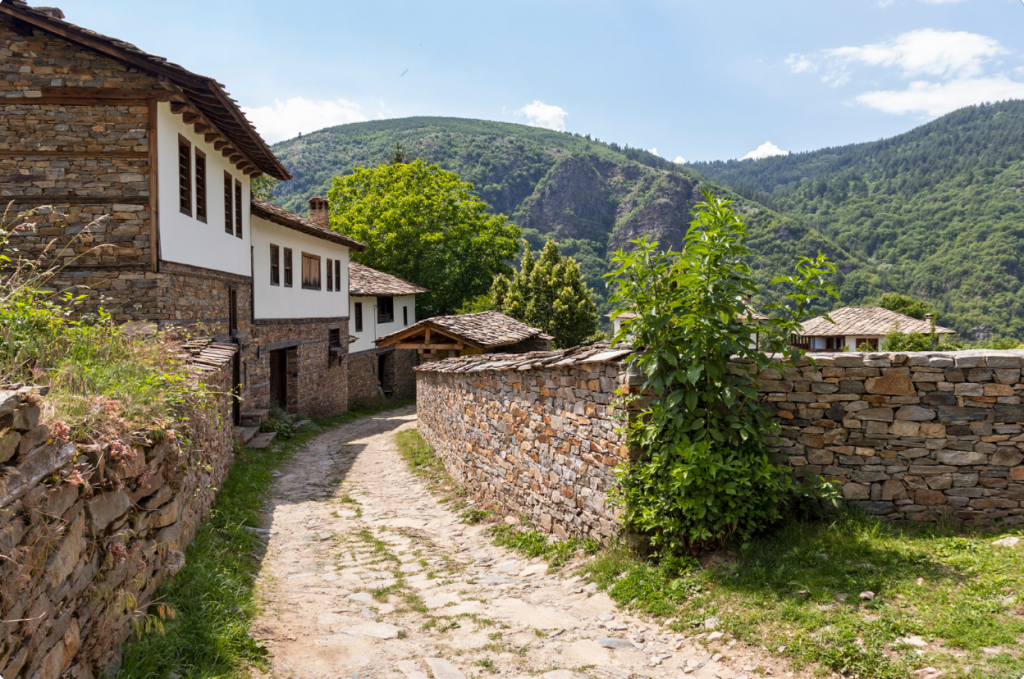
Garmen is a village in southern Bulgaria, situated in the beautiful and mysterious Rhodope mountains. With its less than 2000 inhabitants, it’s the perfect escape from the hectic life of large and medium-sized towns. Not only will you have the best of Bulgarian nature around you, but you will also feel as if you’ve traveled back in time.
Garmen has just the right amount of facilities for you to be able to set up for remote working. Like anywhere in Bulgaria, internet speed is among Europe’s best. It’s no wonder we’ve chosen Garmen as our company’s next outpost location. We’ll be spending a whole week working remotely there and we can’t wait!
The Garmen municipality also boasts several other options such as Leshten, Kovachevitsa, and Ognyanovo which are equally good.
Cost of living (avg): 500 EUR/month
Bulgaria Internet speed (avg): 33.5 Mbps (2021)
Population: 14 000
Piran, Slovenia
If you’ve been to Slovenia before, there’s no need to explain why it’s a good idea to spend more time there. Piran is most certainly one of Slovenia’s best small towns to visit. It is situated at the Adriatic sea and is at the western edge of the Balkan peninsula. For the lovers of calm and European architecture, there’s hardly a better location.
If you decide to spend a longer time in the city and want to escape every once in a while you might not have realized yet that you are very close to neighboring Italy and Croatia. You will never be short of day trip options.
Cost of living (avg): 1400 EUR/month
Slovenia Internet speed (avg): 103.43 Mbps (2021)
Population: 3700
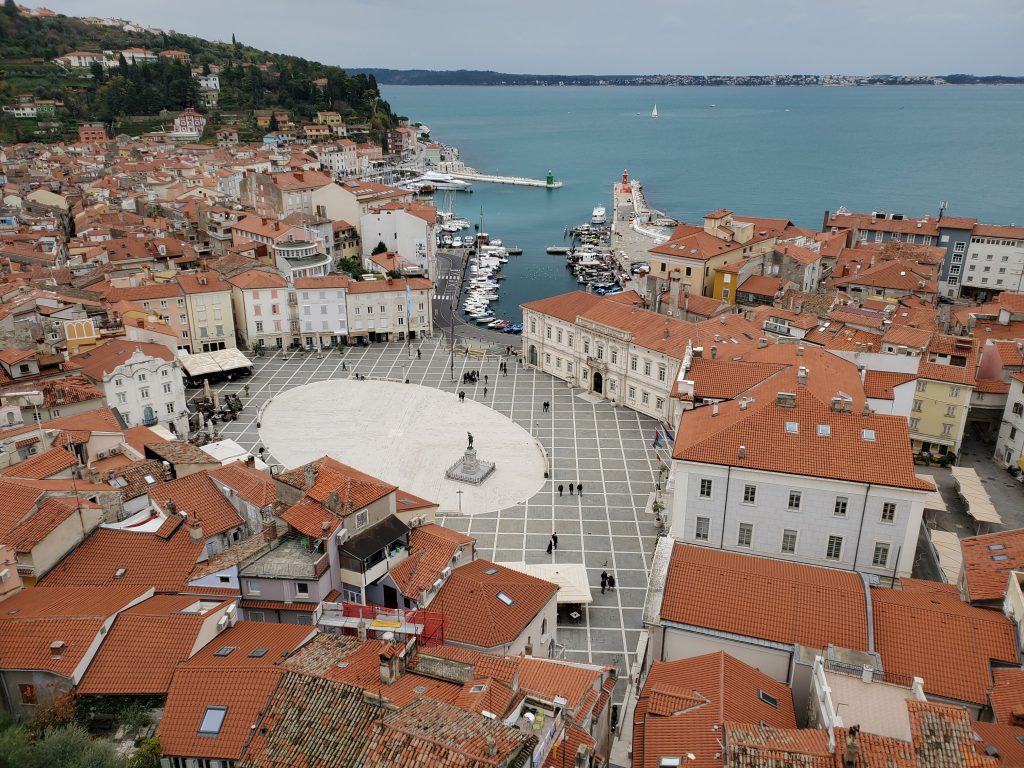
Mostar, Bosnia & Herzegovina
Bosnia & Herzegovina is often overlooked by travelers. It is also incredibly underrated. That makes it perfect if you really want to escape fellow digital nomads. Mostar is a medieval town with a unique east meets west blend. It’s also famous for its traditions in wine-making. And while you’re at it, throw some delicious Balkan food into the mix.
One potential downside might be that Bosnia & Herzegovina is not a member of the European Union. Therefore, if you are an EU citizen you’ll have to rely solely on wi-fi. What solves the problem is one of the city’s few coworking spaces – Code Hub.
Cost of living (avg): 800 EUR/month
Bosnia & Herzegovina Internet speed (avg): 43.45 Mbps (2021)
Population: 113000
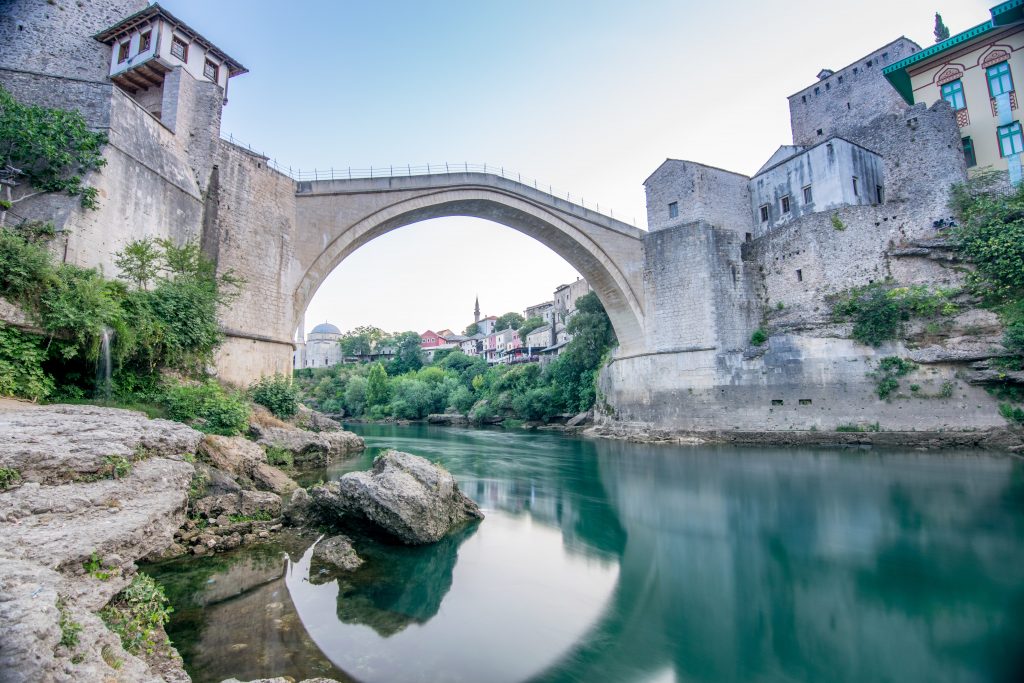
Tyulenovo, Bulgaria
Bulgaria’s Black Sea coast has been a tourist hot spot for decades. However, there are several off-the-radar locations. One of them is Tyulenovo. Still untouched by mass tourism, this coastal village is the perfect remote-work destination for all who seek peace and quiet while enjoying stunning sea views. Apart from relaxing, Tylenovo is also great for fishing and doing extreme sports like rock climbing and scuba diving.
You also have plenty to explore in the area. You can consider a day trip to Balchik, Shabla, and Durankulak.
Cost of living (avg): 800 EUR/month
Bulgaria Internet speed (avg): 33.5 Mbps (2021)
Population: 61
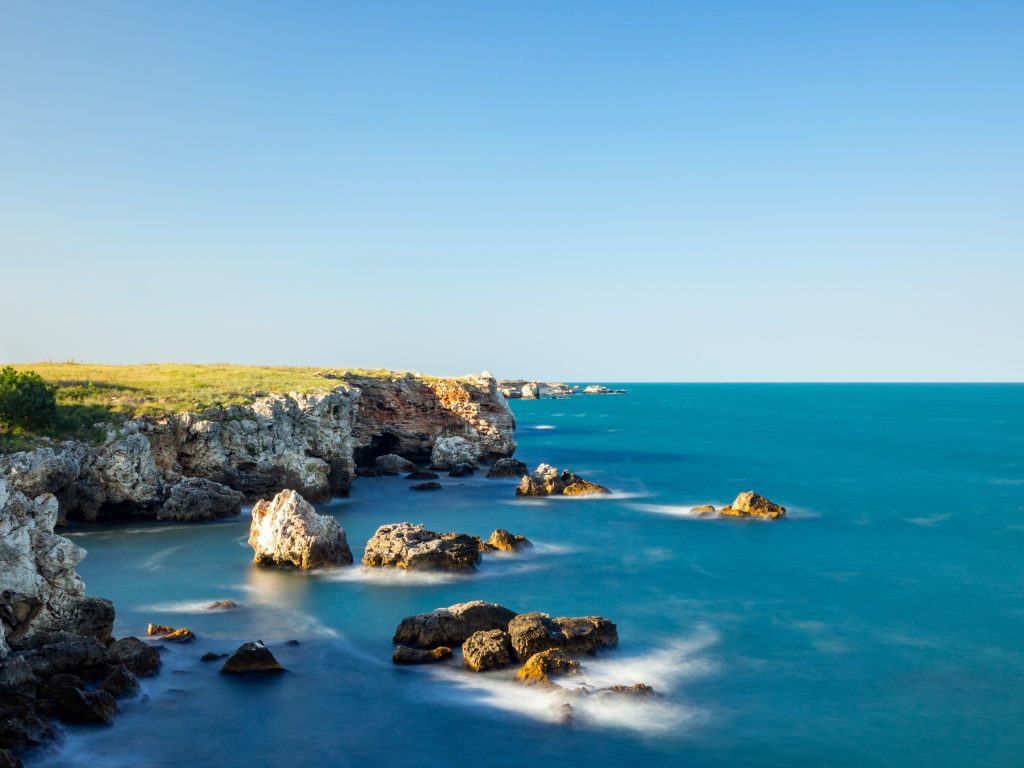
Vama Veche, Romania
It would be a crime to skip Romania – the country that ranks third for remote working in 2022 (Source: Momondo). The country’s coastal village – Vama Veche is the contrast of mass a tourism beach destination. A typical day includes summer cocktails or speciality coffee in a beach bar, amazing fresh fish dishes, breathtaking views, and partying until dawn.
Basing yourself in Vama Veche – just 200 km away from Bucharest and 17 km away from Varna – the sea capital of Bulgaria, you’ll have several options for day trips.
Cost of living (avg): 800 EUR/month
Romania Internet speed (avg): 205.89 Mbps (February 2021)
Population: 282

Amasra, Turkey
Turkey’s popular summer destinations are largely situated in the country’s south coast. This makes Turkey’s Black Sea coast less crowded and off the beaten path for most tourists. It is however popular among locals. Amasra is a small coastal town with an authentic feel – perfect for long walks, boat trips, and quiet evenings at traditional Turkish restaurants. It is equidistant from both Istanbul and Ankara. As with many of the places in this list of rare gems, there no coworking spaces available in the city. This means that you’ll have to rely on the terrace of your accommodation or any of the cafes around town to do the job.
Cost of living (avg): 500 EUR/month
Turkey Internet speed (avg): 53.29 Mbps (Q4 2021)
Population: 6000
Veliko Tarnovo, Bulgaria
Okay, this is not as off the beaten path as all other entries on this list but it is far less famous and less crowded compared to other Bulgarian destinations like Sofia, Plovdiv, and Varna. This medieval town has the perfect remote work setting – wonderful sceneries, an up-and-coming tech scene, and a small but vibrant digital community. The few coworking places in towns were affected by the pandemic and are currently not open.
Cost of living (avg): 800 EUR/month
Bulgaria Internet speed (avg): 33.5 Mbps (2021)
Population: 70 000
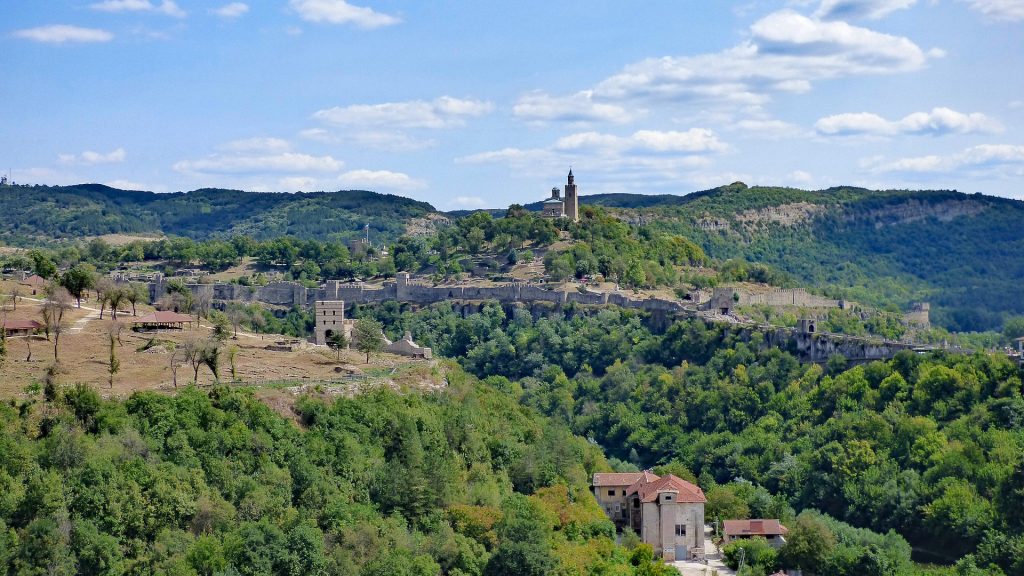
Măgura, Romania
It’s hard to find a place that’s more appropriate for this list of “lesser-known” dream locations for remote work. This truly unspoiled village is situated in the Piatra Craiului Mountains. If you want to be closer to nature and enjoy the slow life, Magura village is the place for you. Staying longer in the village is possible by getting a room in one of the villager’s houses. Needless to say, there are no co-working spaces available. You’ll be creating your own such place out in the open.
Magura is also wonderful if you love hiking, biking, and photography. Nearby day trip options are “Dambovicioara Cave” the “Rasnov Fortress”.
Cost of living (avg): 800 EUR/month
Romania Internet speed (avg): 205.89 Mbps (February 2021)
Population: 3000
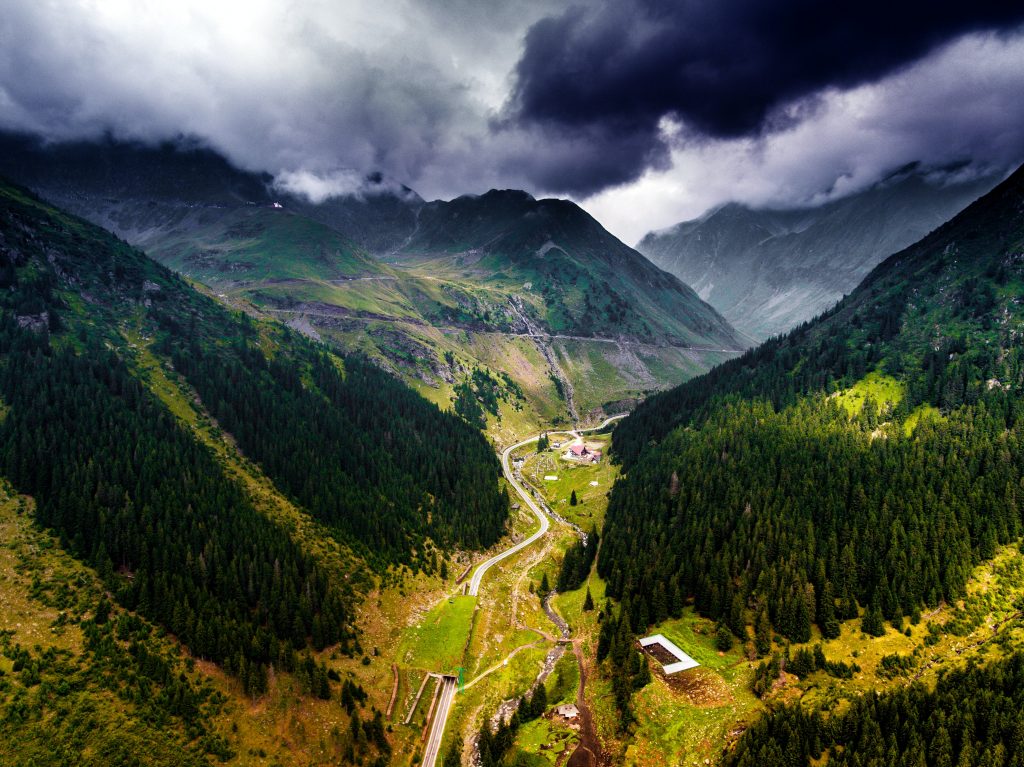
Bansko, Bulgaria
Bulgaria’s biggest ski resort has been gaining popularity over the past decades and is really busy during wintertime. It is, however, far more pleasant and less crowded every other season. It’s very convenient that the city has all facilities that a large resort needs. However, when off-season, you almost have the place to yourself. Last year Bansko also became home to Bulgaria’s first Digital Nomad Fest. This highlighted the city as the perfect destination for remote working. Ever since the event, an increased number of digital specialists have settled in the city and are considering making a permanent move.
It is also home to several co-working spaces like Coworking Bansko and AltSpace Coworking.
Cost of living (avg): 900 EUR/month
Bulgaria Internet speed (avg): 33.5 Mbps (2021)
Population: 12 000 (off-season)
Pros and Cons of being a remote worker in Southeast Europe
It’s wrong to put all countries on the Balkans in the same category as they all have plenty of differences. However, there are some common pros and cons of being a remote worker when compared to other parts of the continent.
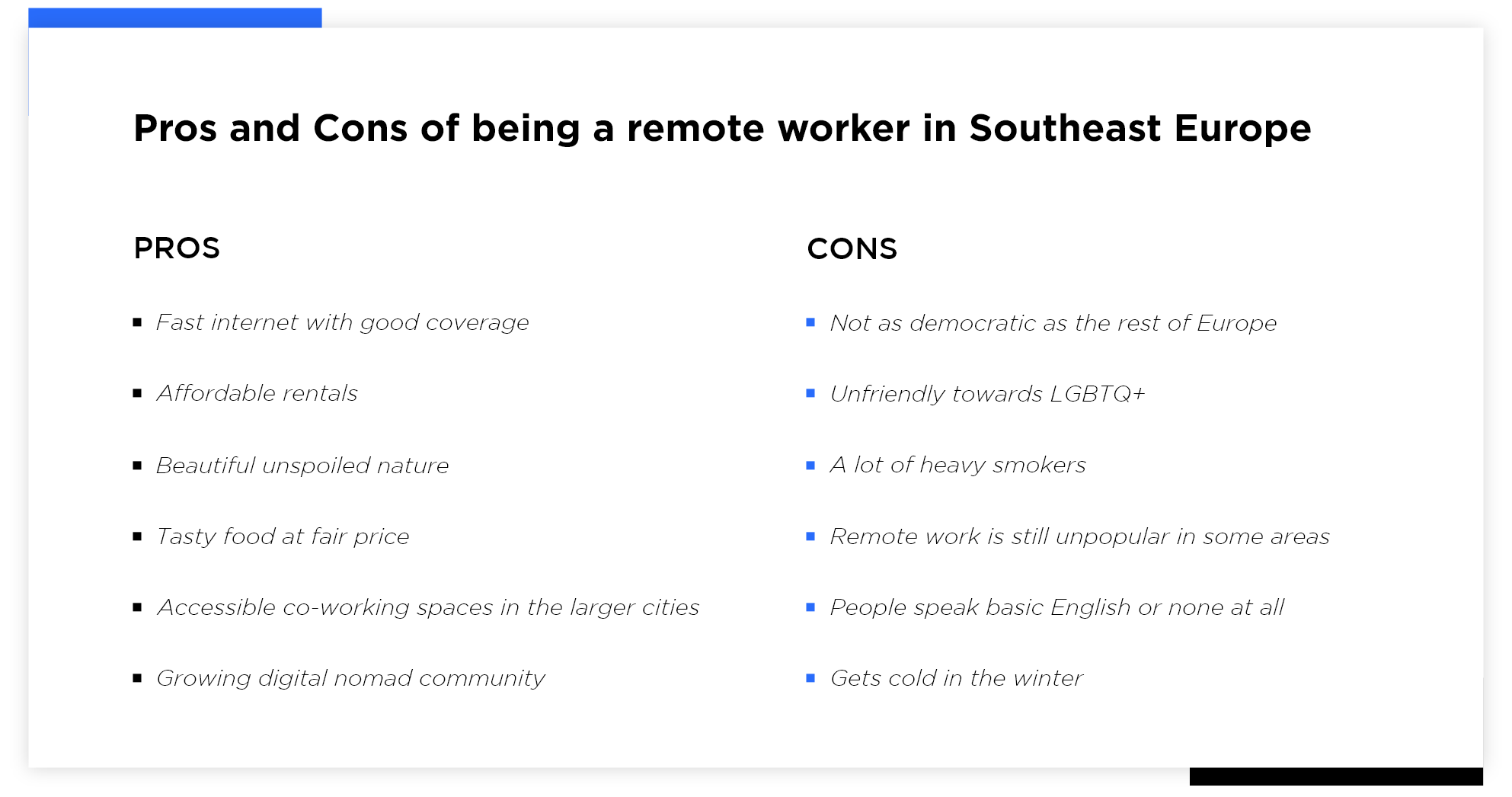
Southeast Europe is Motion Software’s heart and soul. We love the region, all our talent hubs are based here and we truly believe it is one of the best areas for remote working. You might also want to check out:
Best Locations for Digital Nomads in Bulgaria
Romania’s Best Cities for Remote Work
Turkey’s Best Cities for Remote Work

